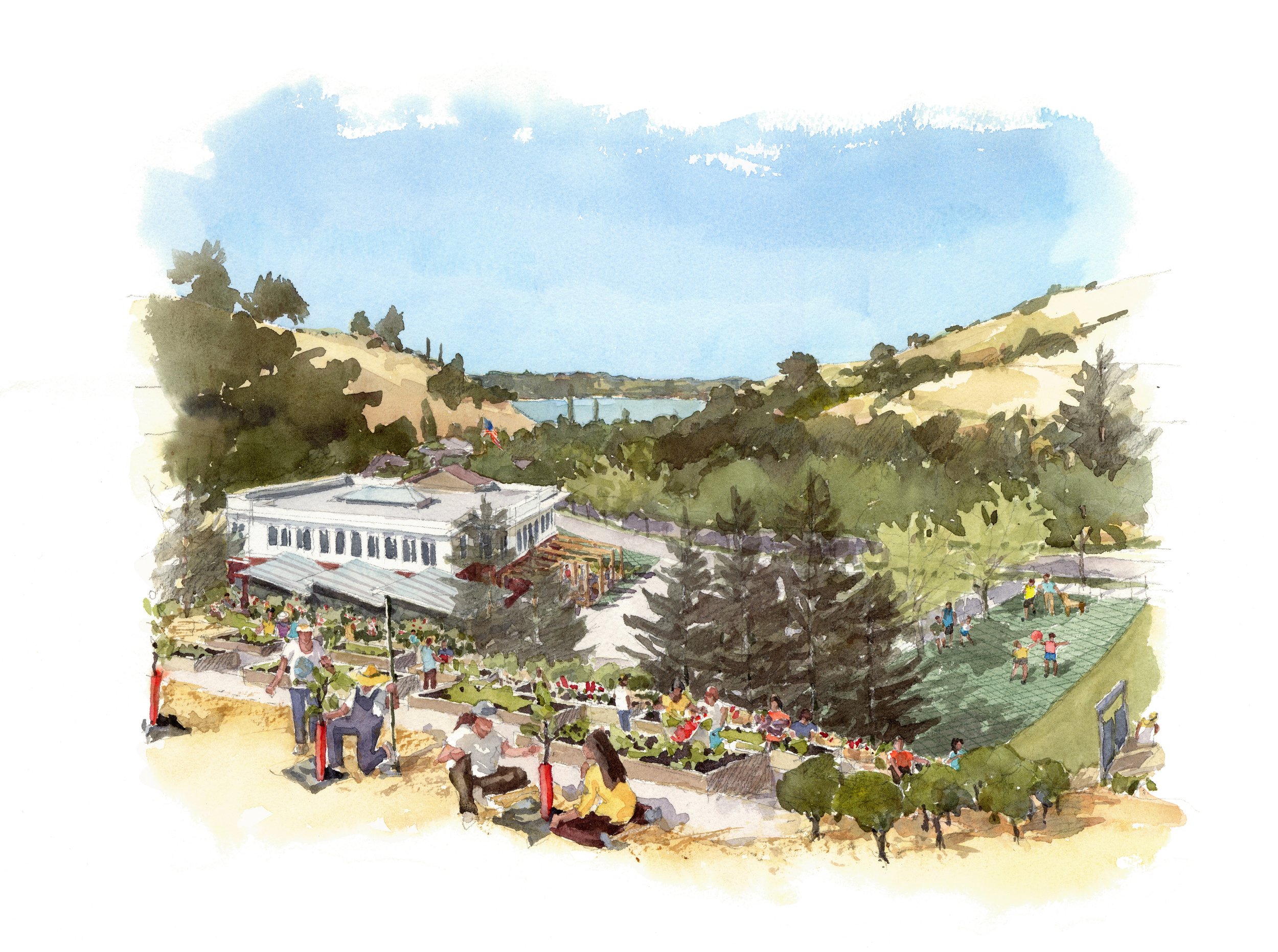
Campus Partners
Bull Valley Agriculture Center: Founder Earl Flewellen and his colleagues have a record of success in building businesses in Port Costa, a commitment to sustainability and the community, and a history of success at preserving the area’s natural and historical assets. They created the regionally sourced Bull Valley Roadhouse, a bustling restaurant and bar recognized as one of the Bay Area’s top 100 restaurants by the San Francisco Chronicle in 2013, 2014, and 2015 and by Condé Nast Traveler as one of the 70 best new restaurants in the world in 2013; the historic Burlington Hotel, opened in 1883, which the team transformed from rundown seediness to a popular destination for travelers; the adjacent café; and E.G. Flewellen’s Bee Farm, a self-supporting apiary and retail honey business.
With these projects finally holding their own, the time was right to focus on giving back to the surrounding land and community. To these ends, the Bull Valley Agricultural Center was founded in 2015, and donations were raised to acquire the land where the bees were happily thriving—a first step towards preserving that land, protecting it from relentless vandalism and refuse dumping, and securing its future as a community resource. The site has been subject to a remarkably tumultuous past few hundred years. At the turn of the century, a dam was built that transformed the watershed into an industrial reservoir—supplying water for the steamships and trains that came to the port in town. Over the last century, subsequent hardscaping, neglect, mismanagement, and an odd range of uses have left the watershed overrun with invasive species, plagued by erosion and siltation, and a flooding liability to the entire town downstream.
Through careful studies of the site’s hydrology and ecology, BVAC, with the help of The Field Semester, aims to regenerate the watershed’s ecology such that it may become an asset for educational and recreational uses that respect habitat, connect people with nature, and enrich the local and regional communities.
Port Costa Conservation Society: For nearly 30 years, The Port Costa Conservation Society, the primary community nonprofit in Port Costa, has been transforming the town’s historic schoolhouse from a crumbling shell of a building into an impressive community center. The 1911 Classic Revival two-story building was on the brink of collapse when the PCCS purchased it in 1988. With no maintenance since the school closed in 1966, ceiling joists had cracked under the weight of rainwater pooling on the roof, plaster fell in great sodden chunks from the ceiling, wooden floors buckled, and lack of proper drainage undermined the foundation. With funds raised both locally and nationally and an incredible team of dedicated volunteers, PCCS has been working tirelessly to rejuvenate the 15,000-square-foot schoolhouse with renovations including extensive seismic retrofitting; upgraded electrical, plumbing, and fire-suppression systems; and ADA-compliant elevators and restrooms. PCCS board chair Ridge Greene is a longtime contractor with a focus on institutional buildings and schools, and along with the rest of the board, brings deep community ties and engagement to the collaboration. With the help of The Field Semester, PCCS hopes to finally finish the restoration and re-enliven the schoolhouse as a thriving educational and community asset. While The Field Semester will use the building for classrooms, a workshop, and a kitchen, the completed building will also offer the local community an improved center for meetings, recreation, and events. The space will allow students and locals to engage meaningfully through lectures, workshops, and projects hosted by TFS and residents of Port Costa and the surrounding region.


